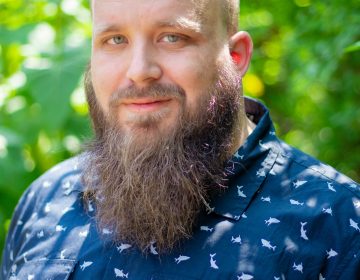 By Janelle Lamontagne
By Janelle Lamontagne
Even pre-cancer, one of my biggest coping mechanisms was avoidance. If I even sensed conflict on the horizon, I turned and ran the other direction. I avoided difficult emotions by keeping myself too busy to think about them. If I felt unfulfilled in one aspect of my life, I would bury myself inside another. I firmly believed that being happy was as simple as choosing to be happy. I cloaked myself toxic positivity and refused to acknowledge that I truly had little control over the most monumental parts of life.
About a year and a half after my cancer diagnosis, I started seeing a psychologist. I asked my family doctor for the referral for two reasons. First, I wanted to ensure that I did everything within my power to successfully return to work. Second, I believed that actively seeking out help proved that I was emotionally okay. I fully acknowledge now that my request for the referral actually stemmed from my need to take control and show off my emotional fortitude, rather than a true desire to heal. When I requested a copy of my psychological assessment report, I was slightly taken aback (but not totally shocked) to read:
“Ms. Lamontagne is entangled in attempts to control her emotions, over-analyze why she is feeling the way she does, and has unworkable goals related to how she should be feeling. She views tearfulness as weakness, is embarrassed that she is tearful, and attempts to avoid it when possible. Although she understands the pitfalls of avoidance, she is overly focused on attempting to control unwanted emotions.”
Those three sentences can be summed up into two words: control and avoidance. If I couldn’t control it, I’d avoid it. I soon discovered, however, that I wasn’t going to be allowed either of those options moving forward.
My therapy began with small activities to help me become more comfortable with not being in control: Place a hard candy on your tongue and just let it melt without manipulating it. Let someone else pick out your outfits for the week. Close your eyes while scrolling through Netflix and watch to the end what ever you select. These activities sound silly, but I found them disconcertingly difficult.
Around four sessions in, I remember the psychologist asking me, “If life were a game of chess, what component do you think you would be?” I thought for a second and replied, “Well, I hope I’m the player and not the piece.” He then looked at me, shook his head, and said, “You are the board. Life is something that happens to us; we have very little control.”
I wasn’t comfortable with that analogy then and, to be honest, I’m still not completely comfortable with it now. Accepting that I have no control is terrifying; it feels far too much like surrendering to me. But surrendering to what?
And what is the alternative? Life has taught me over and over again that my plans and goals and timelines can be disrupted or erased at a moment’s notice. For some reason though, I still struggle to let go of the illusion of control.
Even now, in the middle of the COVID-19 pandemic, I find myself clinging to what I can control. I know I have regressed. I know I have to once again consciously focus on pushing through the discomfort of the unknown in order to accept another “new normal.” I’m reminded of the quote, “Lessons in life will be repeated until they are learned.” Apparently, I need more than a brain cancer diagnosis and awake craniotomy to teach me to loosen the reins on my control. Maybe a global pandemic will be the answer.








